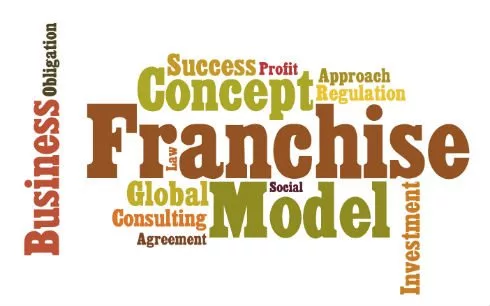
While franchising is a form of business licensing, not all licensing agreements are franchises. The two have some significant differences, and if you are considering growing your business either through franchising or licensing, it’s important to understand how these arrangements are structured.
A franchise is a licensing agreement whereby a franchisee pays a fee to a franchisor for the rights to set up a business using the franchisor’s brand name and business marketing systems. In most cases, the franchisee will pay ongoing regular fees, and may in return receive training and ongoing support from the franchisor.
The advantages to franchisors include the opportunity to expand their businesses and earn additional income, while franchisees benefit from the use of proven business systems along with the assistance, expertise and experience of their franchisors.
Licensing is basically a method of distributing products and services, and may come in the form of a distributorship, an Agency agreement, or a franchise arrangement. However, a non-franchising licensing agreement usually does not include the rights for the grantee to use the granting company’s brand or trademark.
There are four specific criteria for determining whether a licensing agreement is a franchise or not. A business licensing structure must meet all four of these in order to be deemed a franchise. These are:
1. There is an agreement in written or oral form, or one that is implied.
2. The grantee pays a fee to the grantor in order to conduct the business.
3. The grantee conducts the business under a system or marketing plan which is under the control of the granting party.
4. The business is associated with a trademark, advertising or commercial symbol licensed or specified by the grantor.
It is usually the last two of the above that will specifically determine if the arrangement is a franchise, since all types of licensing agreements generally adhere to the first two.
Another difference is that a franchise may include the right of the grantee to sell products or services in a specified geographical area or territory. By contrast, a licensing agreement is not likely to include territorial or trademark rights, or ongoing support or training.
Licensing is also likely to cost considerably less than franchising to enter into, but may provide a higher degree of independence and flexibility for grantees in how they choose to conduct their businesses.
There is no strict definition for a system or marketing plan, but it may include the following features:
• Structured models for selling products and services.
• Ongoing support from the franchisor.
• Franchisee training.
• Rights to use the franchisor’s brand name, logo, promotional materials and marketing systems.
• Centralised record-keeping – for example some franchisors will conduct the bookkeeping and debt collection for their franchisees.
Legal advice may be required to accurately determine whether an agreement is franchising or licensing.
It depends. You may for instance decide to set up your business as a franchise if you have a structured and repeatable business system that can be followed by other parties, and you want to ensure there is a consistency of standards across the products and services being offered under your trading name.
If you are considering entering into an agreement as a franchisee or licensee, the one you choose may depend on whether you want people to use your proven and tested business system or you would prefer to let them do things their own way.
For more information on how to start a franchise, contact us and we can explore your options with you. And if you do decide to set up a franchise, we can provide ongoing support to help you get the best out of it, both now and into the future.
Thanks for reading,
The Franchise Institute Team
1300 855 435